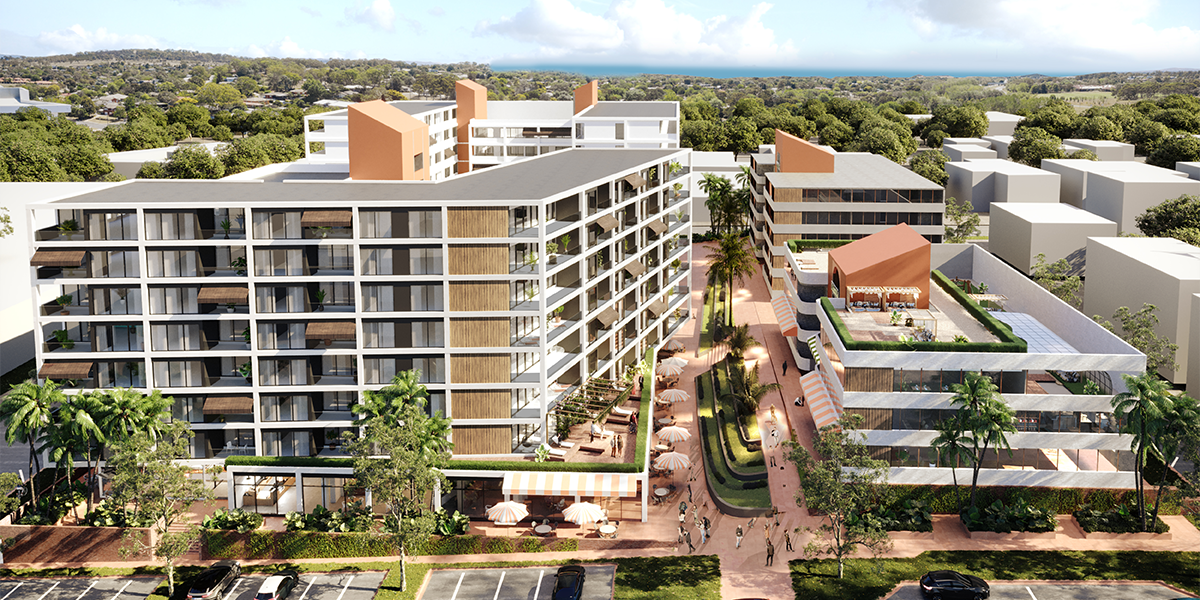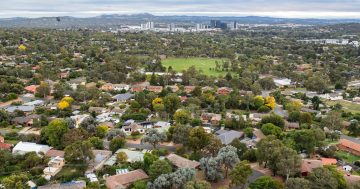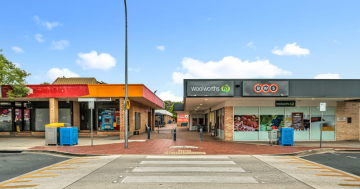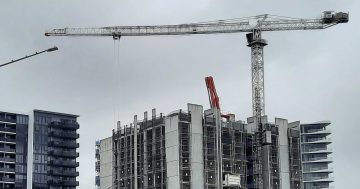
An artist’s impression of the Fleming Group’s proposed Ulludulla development on the soon-to-be-vacated Bunnings site. Image: Cox Architecture.
A Canberra property developer has blasted the ACT’s planning bureaucracy, saying its uncertain timeframes, shifting goalposts, approval delays and poor communication are making the Territory an untenable place to do business.
The Fleming Group – which has completed 20 projects in Canberra, has two under construction and another two in the works – has recently received the thumbs up from the Shoalhaven Council for a mixed-use multi-unit housing proposal in Ulladulla. It has now progressed to the next step in the NSW planning system.
The Group’s Ian Fleming said a less significant proposal in the ACT would still be languishing in the system, costing the developer time and money and adding to the overall cost of the project.
“This [development] has moved quickly,” Mr Fleming said. “If this was in Canberra’s planning system, we’d still be waiting for a completeness check, let alone have majority support and commitment to see this progress. Canberra could learn a thing or two from Shoalhaven.
“We have a pipeline of developments in Canberra but have unfortunately experienced the Barr Government time and time again to be a roadblock.
“The NSW Minns Government, however, is showing a distinctively progressive approach, and this is something we will be watching closely to see where we invest our capital.”
The Ulladulla proposal seeks to amend the zoning, maximum building height and floor space ratio of the current but soon-to-be-vacant Bunnings site, which would allow a mixed-use development offering a variety of housing options addressing critical community needs such as affordable housing, downsizing and ageing in place.
It was submitted to Council through the NSW Planning Portal on 19 January, deemed accepted on 8 February and on 20 May Council voted to support the project.
Mr Fleming said NSW was eager to boost housing supply and realised the roadblock is the planning system.
“To have the Council get a report and then for it to be voted on within four months is unbelievable,” he said.
“It’s just a matter of progressing it through some legislative requirements now, but it’s basically a done deal. We just have to work with Council now to get the outcome.”
Mr Fleming compared the state of the ACT Environment, Planning and Sustainable Development Directorate to stage four cancer. He said the planning reforms had only made the system more complicated, slower and with worse outcomes – the opposite of what they were intended to do.
“It was better in 2016 than it is now,” he said.
A key sticking point was a lack of mandatory time frames for DA completeness checks, which left proponents hanging while interest on borrowed capital piled up and dragged out project timelines.
Mr Fleming said an arrogant EPSDD often restarted the clock on processes and failed to respond to letters and requests to expedite matters.
“There’s zero service and there’s no requirement for them to do anything in any time frame,” he said.
“But then you come to our side of the fence, where we’ve got a lot of money on the line and we’ve got no certainty.”
EPSDD seemed to be all about regulation but not about actually achieving anything.
Mr Fleming rejected suggestions that faster approval times might risk poorer outcomes and more defect-riddled developments.
He said that compared to the amount of construction being completed, the examples of poor quality were actually very small.
There has also been a significant increase in the auditing of certifiers, which he supported.
But in many cases, the builders were following the plans and the engineer.
Mr Fleming said he could live with developer licensing, but it would push up costs that would have to be passed on to the consumer.
He said ACT developers – such as the Snow family, Doma and Morris Property Group – had already started investing elsewhere where they could get a better return on their capital, and others were now contemplating doing the same.
“These are all people that started in Canberra, and then you go, it’s just too tough for you,” Mr Fleming said.





















